Dispelling 7 myths about vitamin D, which stubbornly continue to believe
Categories: Health and Medicine
By Pictolic https://pictolic.com/article/dispelling-7-myths-about-vitamin-d-which-stubbornly-continue-to-believe.htmlAutumn solar activity is markedly reduced and at the same time hundreds of experts in the network, the press and on television begin the chorus to encourage us to overcome the lack of vitamin D to specific pharmaceutical drugs. This "vitamin boom" lasts for more than 10 years, and almost 80% of our citizens believe that they actually do not have enough vitamin D. But is it really? Let's hear from an independent expert who will tell you how things really are.
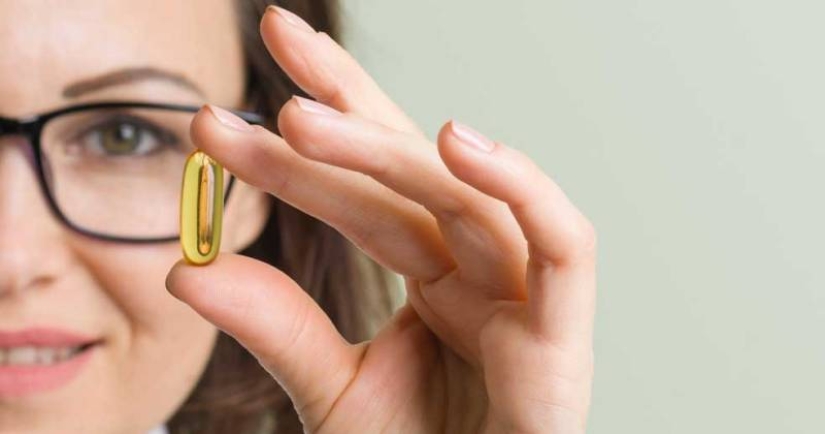
Doctor of the highest category Endocrinology research center, endocrinologist, nutritionist, candidate of medical Sciences Fatima Dzgoeva met with the journalists of the popular edition of "AIF" and spoke about the 7 major misconceptions that more than a century was written around the vitamin D.
The biggest mystery of vitamin D is that it is not a vitamin. The doctors call him that out of habit and to make it clearer to patients. In 1913, scientists have discovered a "growth factor", which later was called "vitamin D". In those days about vitamins knew very little and just do not understand that they discovered a substance is a prohormone from which the formation of hormones important for proper development of the organism.
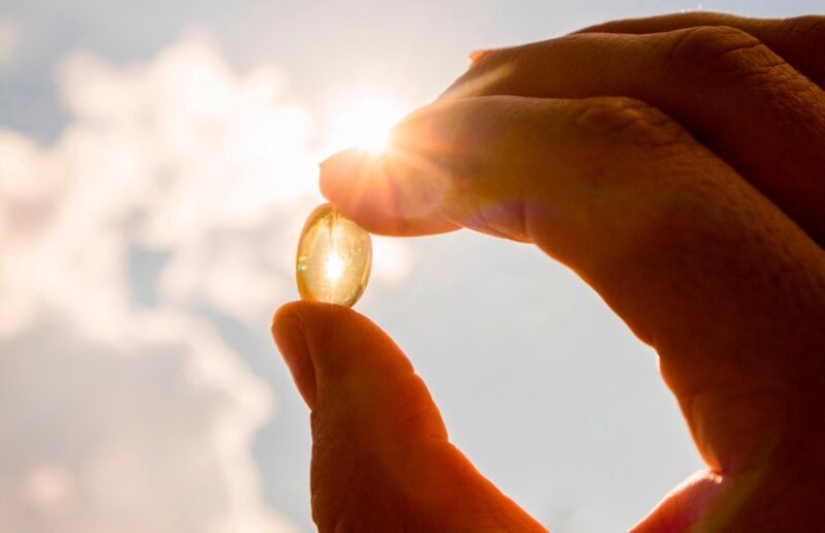
In addition, he is responsible for many other important functions, for example, is involved in the formation of sex hormones that affect the fertility of women and men, and reducing pain during menstruation. Therefore, vitamin D is very important but has to take it within reason and the principle of "the more the better" does not work here.
We know that vitamin D is produced in the body under the action of ultraviolet light and many seek to replenish its reserves, sunbathing on the beach. But scientists say that it is almost impossible. First, in our latitudes, solar activity is not high enough to provide a sufficient amount of radiation, and second, even when on vacation in the southern region, we still receive as much sunlight as you need to develop a prohormone.

The holiday period in the southern countries is too short and we tan while protecting your skin with special creams with UV filters. They help reduce the negative effects of the sun on the skin, but do tan useless from the point of view of getting the coveted vitamin. The Solarium also in this case can not be recommended as it is easier to make melanoma than to obtain a sufficient amount of ultraviolet radiation.
There is another way to get vitamin D from food, but it does not work. You just can't handle the amount of food needed to replenish his stock. The daily dose of a substance contains 4.5 kg of cheese, 2 kg of salmon or 100 egg yolks. There are other nuances — many products cannot be consumed together with useful because they neutralize their action.
Dose of vitamin D does not depend on the time of year, so doctors do not take into account the weather outside, and prescribe vitamin products depending on the needs of the patient. The level of a substance depends on many factors: age, lifestyle, diseases, and peculiarities of metabolism.

So before you start supplementation with vitamin D you must see a doctor and be tested. But even when the norm of the substance is reached, stopping is not necessary. To maintain the body's required 30 ng/ml adults require a dose of 1500-2000 IU per day. For newborns the dose will be 500 IU per day for children from 4 weeks to years — 1000 IU for those more than a year — 1000-1500 IU per day.
Also the optimal dose may be increased by the doctor for people with obesity and patients taking anticonvulsant medications, glucocorticoids, antifungals and antiretroviral medications prescribed for HIV. In these cases, vitamin D can write in double and even triple the dosage.
The most common misconception about vitamin D is due to the fact that this substance is necessary only for children who are growing, and the elderly to protect bone from osteoporosis. In recent years scientists have made many important discoveries concerning the action of vitamin D and found that its lack can cause many serious consequences.

Lack of vitamin increases the probability of occurrence of oncological, infectious, cardiovascular and even mental illness. People with deficiency of this substance lie in wait for diabetes mellitus 1 and 2 type, gynecological problems and a range of autoimmune diseases.
Vitamin D is required not only in life but before birth. A deficiency during intrauterine fetal development is fraught with delays mental and physical development, and the emergence of diseases such as congenital cataract and allergies. In the elderly vitamin deficiency increase the risk of developing Parkinson's and Alzheimer's. Yes, it is worth to mention that the substance helps to preserve youth, since it helps increase the telomeres of our DNA.
A common myth that lack of vitamin D can be identified by certain external signs, has nothing to do with reality. Some believe that sweating at night head says that we need to begin to take products containing the substance, but it was just a joke.
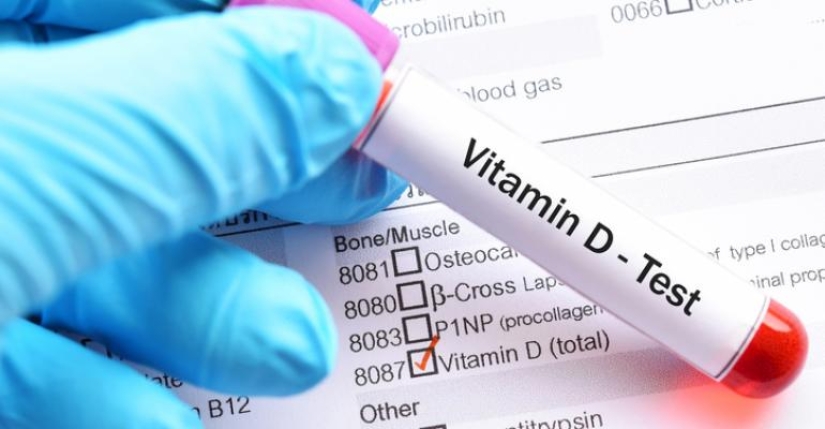
Scientists claim to determine without laboratory tests of blood levels of vitamin D in the body can not even an experienced doctor. No hair loss, no chronic fatigue, no bending of the bones can't talk about the lack of content of the prohormone. The only way to know the real situation — analysis to determine the level of 25 (Oh D3).
No one proved that vitamins are more effective if they are taken daily or, for example, in the morning, not the evening. The bigger issue is dosage, not time of receipt of the substance in the body. Water soluble drugs are recommended to take daily or every 3 days, and those which are based on oil, as in the case of vitamin D, it is recommended to drink once a week or even a month.
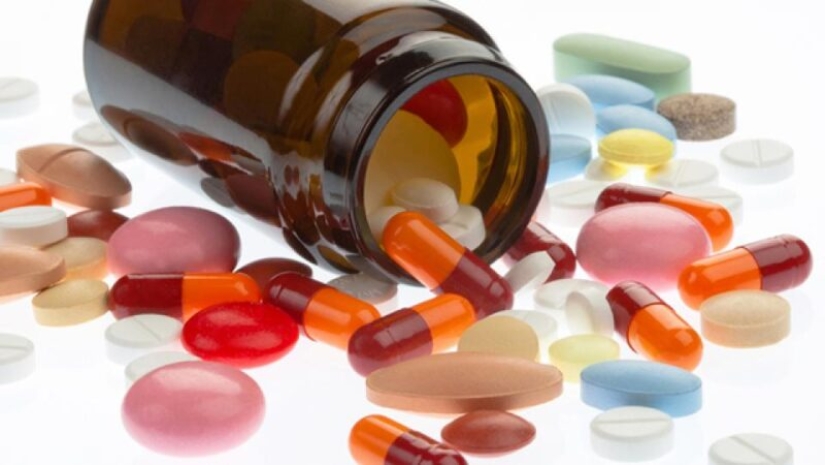
Vitamin D can accumulate in adipose tissue and liver and used as needed. Substance overdose can be no less dangerous than its lack — in large quantities vitamin D can be toxic. This applies to other vitamins — they do not take the packages, not to harm your liver and kidneys.
It is believed that vitamin D is fat soluble and it is better to take in the oil. But it turns out that the oil solution is not as effective as water. In an aqueous solution-based micelle nanoparticles "fat filling" and the shell from the water, it enters the body is fully ready for use.
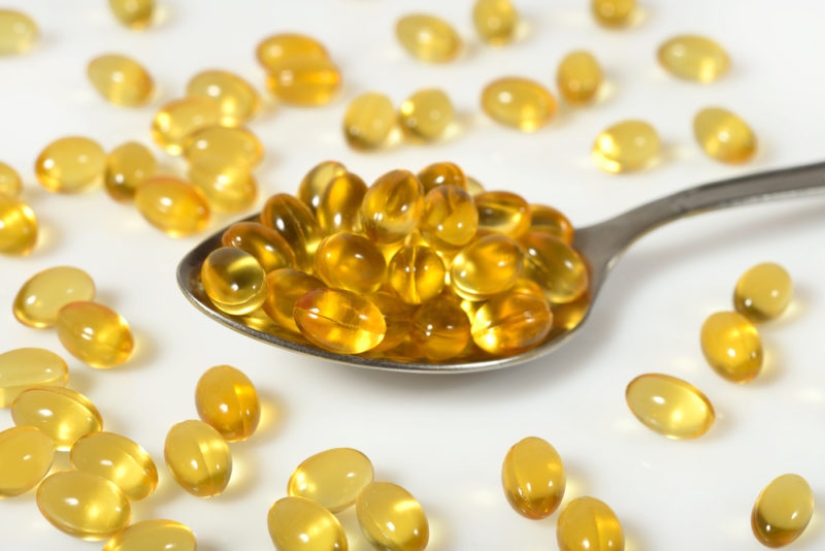
Vitamin D is an oil-based absorbed more slowly, and in some cases, for example, in a number of diseases of the gastrointestinal tract or problems with metabolism may not be accepted by the body. The decision about what form of substance you choose will need to take a doctor.
Not less legends surrounds the one other important substance — vitamin E. Its been a long time, scientists considered almost a panacea for all ills, but after serious research changed point of view.
Keywords: Beriberi | Vitamins | Hormones | Doctor | Babes | Sun | Ultraviolet
Post News ArticleRecent articles

It's high time to admit that this whole hipster idea has gone too far. The concept has become so popular that even restaurants have ...

There is a perception that people only use 10% of their brain potential. But the heroes of our review, apparently, found a way to ...
Related articles

An old tradition to eat alcohol, kebabs, sausages and other meat products obviously there for a reason. Our ancestors, having a ...

Relatively recently, the world began to learn about gender diversity. Started talking about a lot of things that have never been ...

It's still autumn on the calendar, and it's almost winter outside the window. And, most unpleasant of all, a pandemic. The main ...

New Year's is a time to surprise and delight loved ones not only with gifts but also with a unique presentation of the holiday ...